The Parochialism of Philosophy
Interview by Richard Marshall.
Robert Pasnau works mainly in the areas of mind and knowledge. His research has run from the Presocratics all the way to contemporary thought, but at present is focused mainly on the late scholastic and early modern era. Here he discusses why study philosophy, the parochialism of the history of philosophy, in particular medieval philosophy, after certainty and the lively domain of epistemology, the epistemic ideal and skepticism.
3:AM:What made you become a philosopher?
Robert Pasnau:I grew up in the suburbs of Minneapolis, reading lots and lots of literature, in an almost completely self-taught and self-directed way. Once I figured out I wasn’t going to be a novelist, I thought I might be a scholar, and then I figured out that it wasn’t the stories I loved, but the ideas in the stories. As that realization played out, during my undergraduate years, I made my way from English to History to Philosophy.
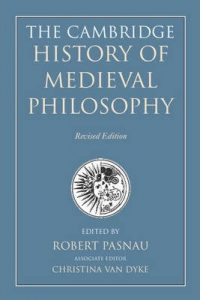
3:AM:You're a history of philosophyguy. You’ve recently made claims for the study of the history of philosophy, urging young students wanting to enter philosophy to think seriously about studying figures from the past. So why do you say studying philosophy is worthwhile and that the history of philosophy gives us a good grounding for wherever we might branch out to afterwards?
RP:My most read piece of work is probably a letter I wrote, on a whim, in something like 15 minutes, to graduate students in my own department, making the case for why studying the history of philosophy might not be a bad idea. I would stress, though, that I don’t think it’s helpful to generalize about these matters. I know some very good philosophers who don’t read anything – they just think about the questions of philosophy directly, and maybe they like talking to other people about these questions. I’m just the opposite – I love to read, and pretty much every idea that I’ve ever had has had its genesis in reading about what other people have thought. If you’re like me, then the question arises of what you should spend your time reading. Some people think it’s generally a waste of time to read anything that wasn’t written in the last few decades. (Of course, no one is so closed-minded as to have a blanket policy about such matters – but what’s at issue here is one’s general proclivities.)
I spend lots of time reading what’s just come out in the journals, and that has a huge influence on all my work. But it seems obvious to me that there is lots and lots of historical work that is just as worth reading. Really, how could it be otherwise? Given the up-and-down trajectory of the whole history of philosophy up to this point, how likely is it that we inhabit the one unique era when philosophy has managed so to transcend its past as to make all that past irrelevant? Anyway, even if this is an era of unparalleled philosophical excellence, it’s also an era in which most of what’s written is pretty tedious. Or so it seems to me. If all I could study were philosophy from the last few decades, I would long ago have gone back to studying literature. But, again, tastes and aptitudes vary, and it’s not helpful to generalize or legislate for others. Some philosophers can spend their whole careers working out the intricacies in one little corner of the profession, and it’s clear that this is an important way of making progress in the field. People need to figure out what they love, and what they’re good at. I admire people who are good at working out intricacies in tight corners, but it’s not a particular skill of mine.
3:AM:A criticism you have of the current state of play regarding history of philosophy is its parochialism. Can you say what you take this parochialism to be, why it’s a bad thing, and what we should do about this?
RP:Our histories of philosophy are astonishingly parochial. Across two and half millennia and a whole planet, there are basically only 9 historical figures you can write about without running the risk of marginalizing yourself as a young philosopher. And although we haven’t yet run out of fascinating things to say about any of these canonical 9, those of us who work in the history of philosophy know that there’s an enormous amount out there that is much more in need of study, and where younger scholars are much more likely to be able to do valuable work. The situation in philosophy is like what it would be in biology if we knew there were whole other unstudied phyla of living things and yet we just didn’t get around to studying them because we worried no one could get a job in that area.
Why is it like this? In part, of course, we historians must take a good part of the blame, since we’re the ones with the training and proclivities to rectify the situation. But in part the problem arises because decisions in philosophy are made by a non-historical majority who have no idea how parochial our standard histories are, and who often don’t care much about that history anyway. Imagine if philosophy were folded into science departments and hiring decisions were made by a bunch of physicists, drawing on their undergraduate memories of what the central questions are.
So how do we manage to make progress on these other phyla? It’s not realistic to expect that departments are going to hire significantly more historians, and it’s not even my view that they should. But we need to let go of the idea that every major department needs an Aristotle scholar, a Plato scholar, a Kant scholar, and so on. Of course, every department needs to be teaching these things. But we need to start encouraging younger scholars to branch out, in their research, into understudied areas. This is exactly what happens in most parts of philosophy, where folk work in an area for a decade or two and then move on to fresh subjects, and where those who find new topics to work on are the ones who get rewarded. In continental Europe, this is also what the history of philosophy looks like. There, our focus on a handful of Great Man is considered weirdly obsessive, and research projects tend to focus on enlarging the boundaries of the discipline. In the Anglo-American world, in contrast, historians of philosophy have been penned into the same field for a very long time, and we are grazing it down to the roots.
3:AM:This issue of parochialism is clear when we examine the vast terrains of medieval philosophywhich you call ‘the Wild West of philosophy’s history’ and where so little is known and too few philosophers studied.
RP:For sure, the medieval era is the most obvious example of what I’m talking about. After all, what we call “medieval” encompasses around half of the roughly 2400 years of philosophy for which we have a written record. It is recent enough that we have massive quantities of surviving material, but it is old enough that this material takes some effort to get at, and as a result has mostly not been studied at all. So if you think of the decision to study a certain field as like an investment, the medieval era makes for an excellent bet. But the risk is marginalization. Of the top 50 American programs in the new Gourmet Report, only 10 have an expert in medieval philosophy, and none of those are currently among the top 15 programs.
I know that some people won’t be much moved by any of this, because they just don’t buy the idea that there are these great neglected masterpieces that, when uncovered, will illuminate the current state of the field. But we’re not necessarily looking for more Great Men who have been lost to history. Just as any given issue of a journal may contain an article by some hitherto unsung figure who advances the field in some notable way, so too an otherwise undistinguished fourteenth-century friar might have had similarly worthy ideas about some particular topic. And given how fitfully philosophy advances, I don’t see much reason to think the next great advance in the field will come from a new journal article as opposed to a newly discovered text from the fourteenth century. If the latter is unlikely, that only because we put so few resources into this sort of historical excavation.
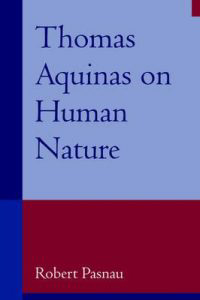
Quite apart from a purely professional interest in wanting to advance the field, there are considerations of fairness and historical justice to be considered. I have been speaking of Great Men, because that, of course, is what they are. But there were a significant number of women, over the centuries, that made significant contributions to philosophy, and it’s a byproduct of our historical parochialism that we have ignored these women almost entirely. Here, happily, the situation is getting better. Inspired most notably by the late Eileen O’Neill, a whole new generation of scholars working in early modern philosophy has been making great strides in our understanding of the women who did philosophy in the seventeenth and eighteenth century. From this beachhead, the movement is spreading outward, for instance to Christina Van Dyke’s work on medieval female mysticism.
To my mind, an equally pressing need is that we find a way to globalize the history of philosophy. Indeed, here lies the field’s most scandalous sort of parochialism. For even though it is perfectly well known to everyone that there are rich and sophisticated philosophical traditions that span the globe – most obviously in Chinaand Indiaand across the Moslem world – this work has been almost entirely ignored by Anglo-American philosophy departments. That we do this is so commonplace as to rarely attract attention, but if one takes a step back and looks at our curricula with this issue in mind, our field is really just breathtakingly provincial. (That’s the most polite word I can think of. Other words come to mind.) Where philosophy is today is something like where literature departments were in the 1950s, but somehow the explosions of the canon that took place there, nearly half a century ago, simply passed right over philosophy departments. We’re the only place in the university where the West really is thought to be the Best.
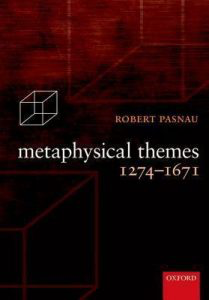
3:AM:These might strike people as surprisingly progressive sentiments from someone who studies medieval philosophy!
RP:Well, there are basically two motivations – by no means mutually exclusive – for getting into medieval studies. One is an enthusiasm for the religious cast of mind that characterizes that era. The other is an appetite for the marginalized, for figures that lie on the boundaries of the canon. If you go to one of the big medieval conferences like Kalamazoo, you find a weird mix of both of these tendencies, with radical academic politics on the program right next to conservative Thomism. My own motivations are very much of the boundary-crashing kind, and so an interest in non-Western thought feels like a perfectly natural extension of my interest in medieval philosophy. I have in fact devoted an immense amount of time over the last eight years teaching myself Arabic, in an effort to be able to do some serious scholarly work on medieval Islamic and Jewish philosophy.
3:AM:So let’s talk about your recent scholarly work, and in particular your new book on the history of epistemology, After Certainty.] You argue that this hugely significant area of contemporary philosophy is discontinuous with epistemology as done from Aristotle onwards, for indeed most of philosophy. First then, can you say what the features of contemporary epistemology are, and who the key figures in bringing this type of epistemology about are?
RP:That’s a hard question to answer, because so much is going on in epistemology right now. It seems to me pretty clear that epistemology is the most lively and interesting area of philosophy at the moment, having taken that position of honor over from metaphysics, which has had a good run for a few decades now. Indeed, the field is so burgeoning at the moment that I fear that if I tried to characterize “contemporary epistemology,” it might be right for only about the next five minutes – or, more likely, for the five minutes of 2017 when I was sort of caught up on the latest developments.
I’ve been trying to write a book on the history of epistemology ever since I was in graduate school. What made it seem impossible to do was that, back in the 1990s, still pretty much the only game in town was the old game of finding necessary and sufficient conditions for this thing we call ‘knowledge.’ And that’s just not something that you find being done throughout most of the history of philosophy. People find it in Plato, and so they figure it must run all the way forward from there to now, but in fact one almost never finds debates over how to define knowledge. At most one finds people giving lists of different meanings: knowledge in a strong sense, in a semi-strong sense, and so on, and then moving on from there to the topics that really interest them.
3:AM:You contrast this definitional approach with what you call the ‘Epistemic Ideal’, and trace this back to Aristotle and Stoics. So what are the characteristic features of this understanding of epistemology?
RP:Yes, what one does find all through the history of philosophy, preeminently in Aristotle’s Posterior Analytics, is an interest in identifying the epistemic ideal. Rather than start with some epistemic term from ordinary language and seek to analyze the associated concept, philosophers have much more often sought to describe what it would be for beings such as us, in a world such as this, to have an optimal cognitive grasp of reality. This is what epistemology has looked like, for most of the history of (Western!) philosophy, but it’s hard to spot as such, because the project can only be completed when pursued alongside metaphysics and cognitive theory. We have to figure out the nature of the world we live in (are the objects of knowledge universals? tropes? simples?), and we have to figure out how our cognitive faculties work (what do the senses contribute? what does intellect add? what even is intellect?)
3:AM:Doesn’t your reading suggest that reading, say, Aristotle’s Posterior Analyticsas being about proto–science is wrong?
RP:Absolutely. Scholars have branded it that way because it doesn’t look like twentieth-century epistemology, and so in the absence of any better conceptual framework they’ve thought of it as a work of scientific methodology. What’s correct about this is that the modern conception of science precisely grows out of the later medieval attempt to identify the epistemic ideal, which they labeled scientia. My book spends a fair amount of time looking at the origins of modern science. Once one thinks of all this material in terms of the framework of an idealized epistemology, the history trajectory from Aristotle to modern science comes much more clearly into focus.
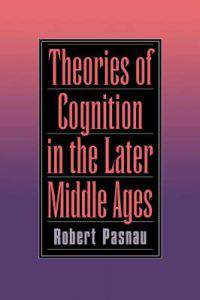
3:AM:Is it because of this account of epistemologythat radical skepticism, for example, and the idea of certainty, weren’t issues that concerned philosophers before the seventeenth century? Was the seventeenth century’s revision of scholastic Aristotelianism one of the reasons why it did become important?
RP:I’m pulled in two different directions on the subject of skepticism. On one hand, I think its historical significance has been wildly exaggerated. As you say, it’s not a terribly important theme among medieval authors. But I also think it’s not really all that important in the seventeenth century either. Here I’m not saying anything very original; plenty of others have made that point about, for instance, Descartes. But what I want to stress is that you can see why the issue isn’t terribly important given the idealized perspective that runs through these centuries. For no one could suppose that we very often, if ever, achieve the epistemic ideal, and so if that’s what skepticism is, then we’re all skeptics. On the other hand, it’s not clear what other privileged threshold there could be, short of perfection. Our levels of cognitive achievement run along a spectrum, and though one can be more or less optimistic about those achievements, it’s not easy even to say what it would mean to assert the thesis of skepticism. Our recent fascination with skepticism is a byproduct of our notion that there is this univocal concept, knowledge, that the philosopher has the task of defining.
But that’s all on one hand. On the other, I think there is a very important notion that goes back to the ancient skeptics, which we might well call a skeptical thesis, but which I prefer to describe as “epistemic defeatism.” This is a view not about knowledge, exactly, but rather about evidence: that, in the final analysis, we lack any good evidence for any of our beliefs. Of course, it takes some work to get clear about exactly what that means, which I try to do in the last chapter of the book. I confess that I’m seriously tempted to think that this depressing thesis is true. But, purely at an emotional level, I maintain a certain level of hope that it is not.
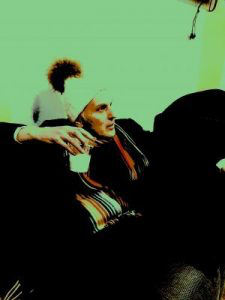
ABOUT THE INTERVIEWER
Richard Marshallis still biding his time.
Buy his new book hereor his first book hereto keep him biding!
End Times Series: the first 302